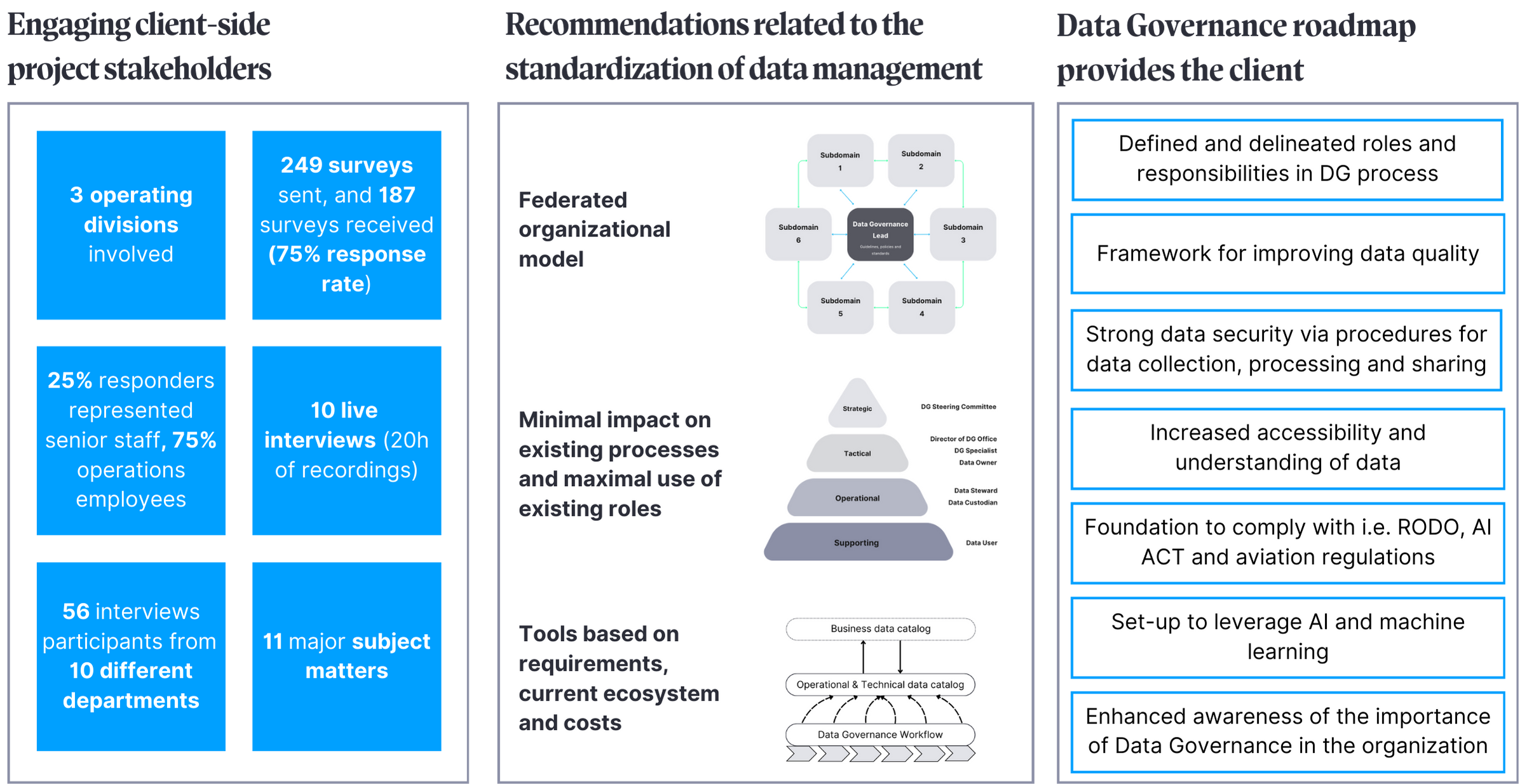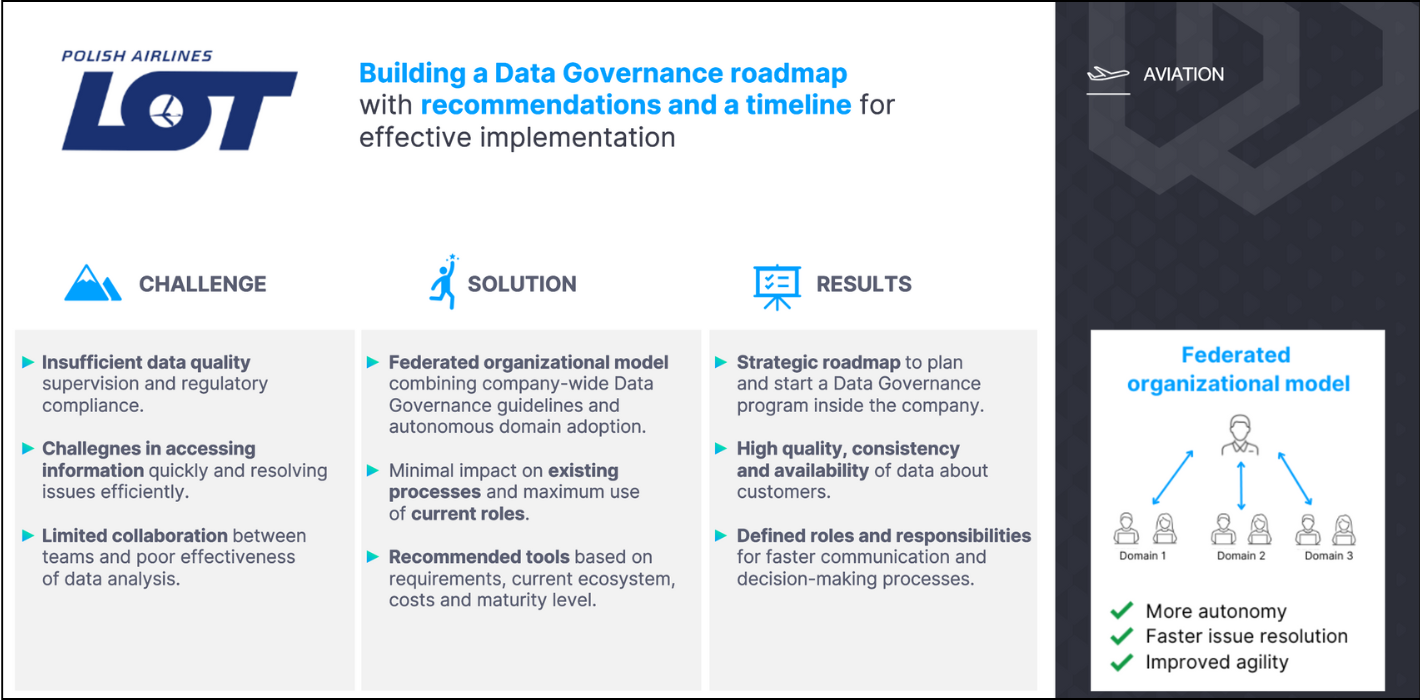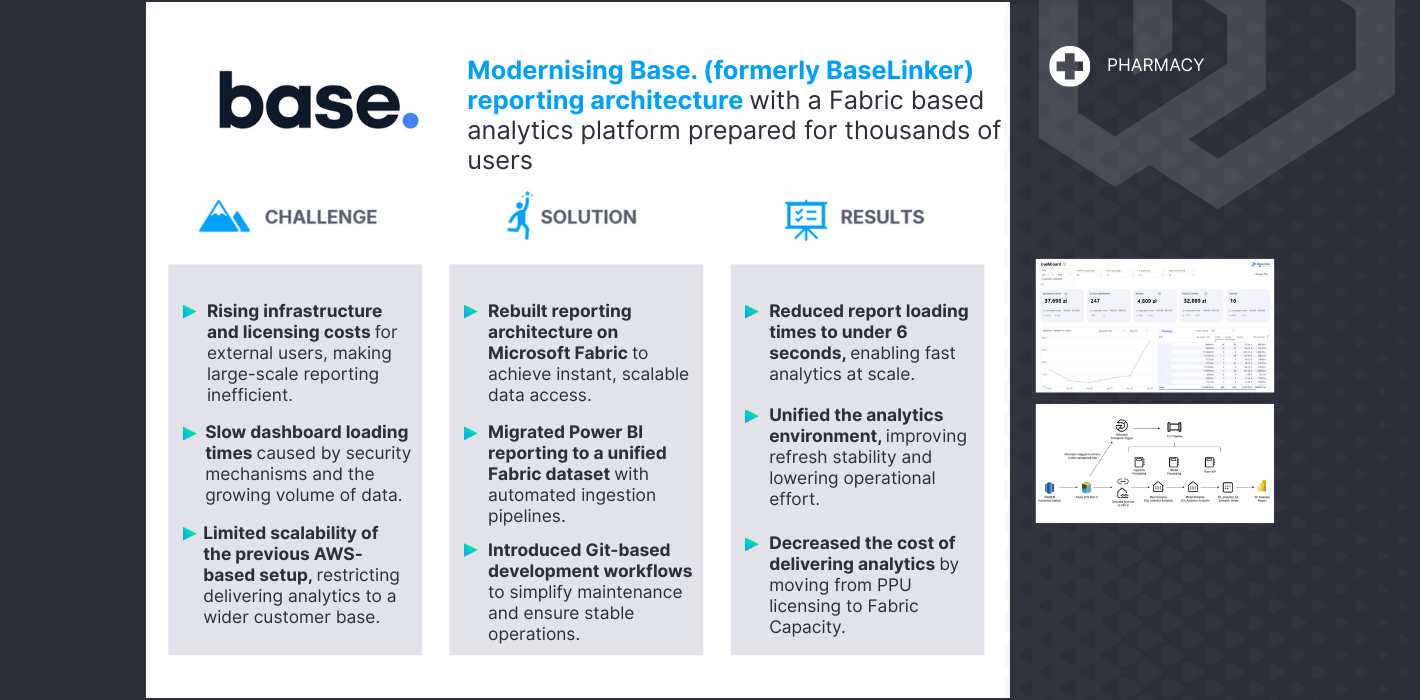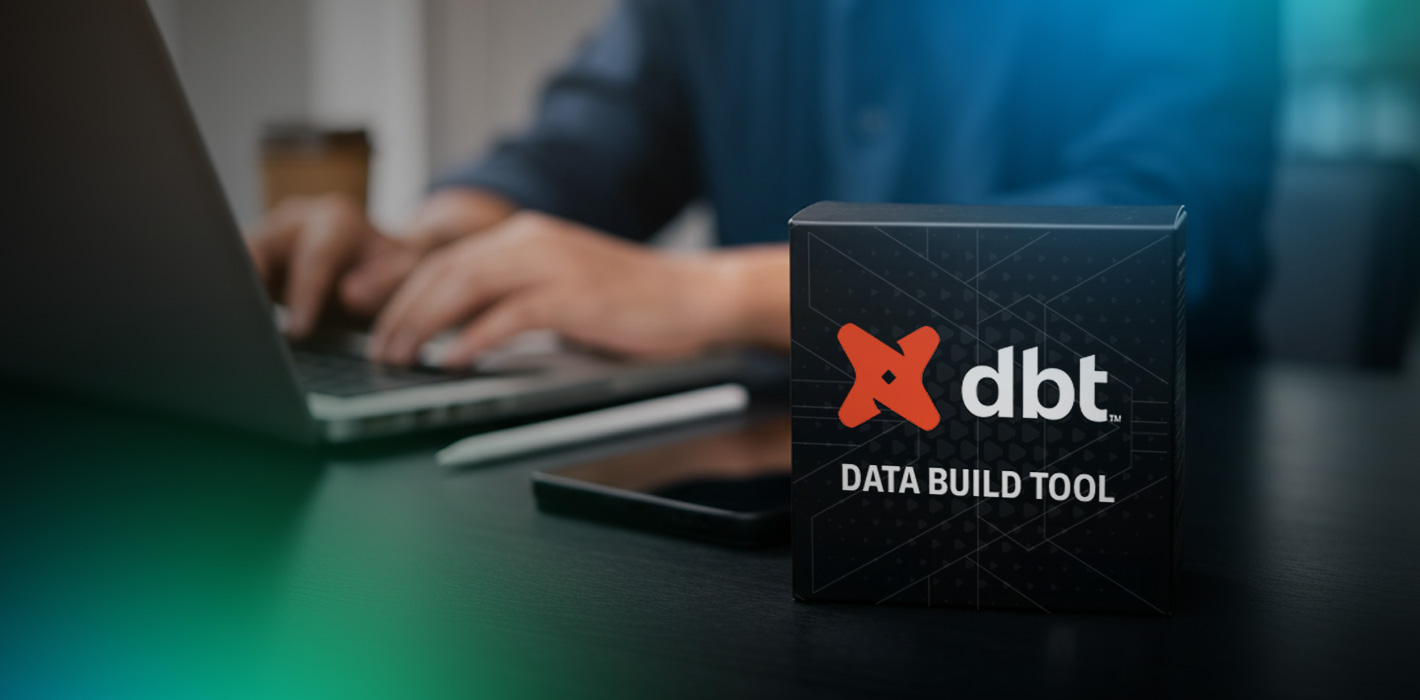The client
LOT Polish Airlines is a national air travel operator, founded in 1929 and headquartered in Warsaw. Actively operating for nearly 100 years, the airline is one of the longest-existing in the world. Offering numerous international and domestic connections, LOT has become an important player in the aviation market, connecting Poland with many destinations around the world.
Nowadays, LOT is implementing a revised growth strategy, aiming to increase the fleet by 50% (110 airplanes in 2028) and passenger capacity by around 70% (16.9 million by 2028).
How can LOT leverage data as a strategic asset to drive efficiency, enhance customer experience, and fuel its growth strategy?
The challenge
Initiating a Data Governance program involves a vast scope of work that requires many internal resources and organizational and cultural transformation within the company. At LOT, the limited Data Governance initiatives were carried out locally but were not coordinated on a company-wide level.
The problems client was facing:
- insufficient data quality supervision and regulatory compliance caused by undefined data owners,
- challenges in accessing information quickly and resolving issues efficiently due to ambiguously assigned data responsibilities,
- limited collaboration between teams and poor effectiveness of data analysis created by data silos, where information is stored and managed separately,
- operational efficiency, decision-making, data security, and regulatory compliance were affected by the lack of standardized data management processes and governance.
The solution
Analysis of documentation, responses from more than 180 conducted surveys, and 20 hours of material from interviews with more than 50 employees allowed us to diagnose the current state at LOT, develop guidelines, and build a plan to achieve them.
This comprehensive assessment became the foundation for creating a Data Governance roadmap based on a practical iterative approach, with a focus on defining data ownership and minimizing data silos.

The project consisted of several phases
- The discovery phase involved conducting surveys among employees from various departments and positions. This was followed by two-hour live interviews with representatives of 10 different departments, which allowed us to discuss and expand on survey topics. The phase concluded with an ‘As-Is’ view of Data Governance in the organization and a presentation summarizing the collected information.
- While building a roadmap BitPeak included the vision and goals of Data Governance within organization. The project focused on the strategic level of data in the company (access and data sharing, the use of data in daily operations, data ownership, data quality issues, technologies and tools, reporting, data security, standardization, training and development in data management).
- Finally, we revised and got an approval of the prepared document by the organization’s authorities with a recommendation for the Data Governance framework, tools and implementation of the Data Governance program.
The main objective was to prepare a strategy document that will define the goals and recommendations of the first initiatives related to the standardization of data management at LOT. In line with the company’s strategy, Data Governance will be an integral part of the planned projects inside the company.
The recommended federated organizational model ensures the setting of company-wide Data Governance frameworks and guidelines at the central level, but individual departments have a certain autonomy in Data Governance. It also minimizes ineffectiveness and leads to a balance between centralization and decentralization and requires strong cooperation between teams.
The presented implementation schedule has an iterative approach to Data Governance, emphasizing gradual evolution.
The proposed 6-month Pilot focuses on fundamental Data Governance processes in the priority data domain. In the following quarters, the processes will be implemented in subsequent data domains.
The recommended approach minimizes the impact on existing processes and maximizes the use of existing roles within the organization.
Recommended toolset based on requirements, current ecosystem, costs and maturity level.
Benefits
Strategy
A strategic roadmap will help to plan and start a Data Governance program inside the company. The roadmap and implementation recommendation empower the organization with a well-thought-out approach supporting digital transformation.
Customers
Data Governance leads to the standardization of data which ensures its high quality, consistency and availability. Thanks to the changes, LOT may analyze a complete customer profile and personalize offers, increasing customer satisfaction.
Operations
Defining roles and responsibilities for communication and decision-making processes eliminates repetitive questions and speeds up obtaining information. Shared documentation of the used data sources, business glossary, and report catalogue enhance analysis and positively impact the quality of data.


 (+48) 508 425 378
(+48) 508 425 378 office@bitpeak.pl
office@bitpeak.pl








